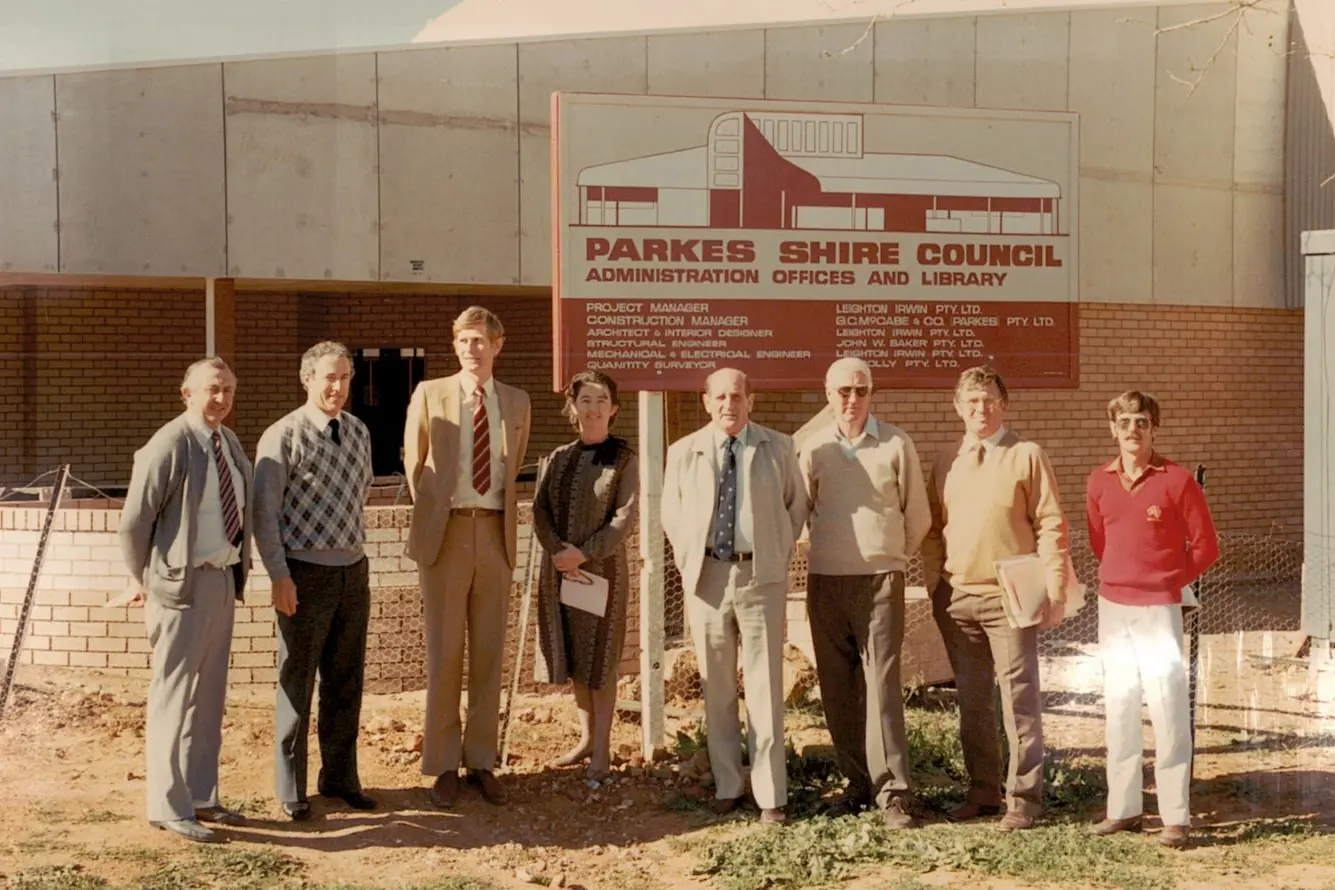PHOTO
OPINION PIECE
By IAN CHAMBERS
The current controversy about the waste to energy project brings to mind an earlier contentious matter which confronted the people of Parkes.
Back in the 1980s the offices of Parkes Shire Council were split between two buildings – the present Neighbourhood Central building and the town clock building.
This created administrative and operational difficulties which adversely affected the efficient and effective running of the Council.
Council recognised the problems involved and realised that something had to be done.
A decision was made to construct a new building which would house all Council administrative departments.
The old electricity substation building on the corner of Bogan and Cecile streets was purchased and plans were drawn up for the construction of what would become the Parkes Shire Administration Centre.
News of this was released in the local newspaper – in those days the Champion Post came out three days a week and was the main source of local news, along with radio station 2PK, before the days of the internet, Facebook, etc.
It wasn’t long before objections to the proposal began from various local individuals and groups.
Letters appeared in the papers slamming Council for what was considered excessive waste of money on an unnecessary building.
Members of the farming community complained that this was good money which could be spent on rural roads, townspeople complained it would probably impact on rates, and a groundswell of opposition arose.
Many people couldn’t see the potential benefit to the town an impressive Council headquarters building could bring.
Council, however, was determined to go ahead, but decided to hold a public meeting to let the community air their views and to better gauge the reaction of the people.
The meeting was held in the upstairs auditorium of the Leagues Club, and some 500-600 people attended.
By this stage the most vocal opponents had swayed the thinking of the majority, and they turned up in force to voice their disapproval of Council’s actions.
The Mayor Robert Wilson and Deputy Mayor Alan Somers, along with a few others were seated on the stage and Robert and Alan both spoke in favour of the plan, and pointed out the problems of the present set-up. They highlighted the administrative benefits and the other potential benefits to the town of this new proposed building.
Visitors to town – state and federal government representatives, potential business investors and other dignitaries, would be welcomed at a modern and impressive building – their first, and perhaps deciding impression of the town.
Parkes would present as progressive and forward thinking.
The crowd however wouldn’t be convinced and the anger throughout the room was obvious.
The Mayor called for a vote and the result was an overwhelming negative response to the plan, with only two hands (yes 2) from the floor going up in support.
The farming sector was particularly firm against the proposal, so much so that in the upcoming council election the Deputy Mayor Alan Somers, a farmer himself but a strong advocate of the new building, failed to be re-elected in a backlash for his support of the project.
Undeterred Council went ahead, the building was built, and it now stands as a testament to the foresight and leadership of that Council.
Of course, following its construction, which was completed in 1986, people came to accept that the decision to build was a very good one, and set up Parkes for a positive future.
This was an example of vocal members of the community creating doubt in the minds of others and the inability of those protesters to foresee the potential benefits of expenditure on needed infrastructure.
The present controversy over the waste to energy project is similar – the vocal few have influenced community opinion to such an extent that now a majority appear to be against it, mainly as a result of the arguments put forward by the opponents.
In an interesting and ironic twist to this story, Alan Somer’s stand in support of the building of the new administration centre, against opposition from many of his contemporaries, was eventually vindicated and repaid by his subsequent re-election to Council.





